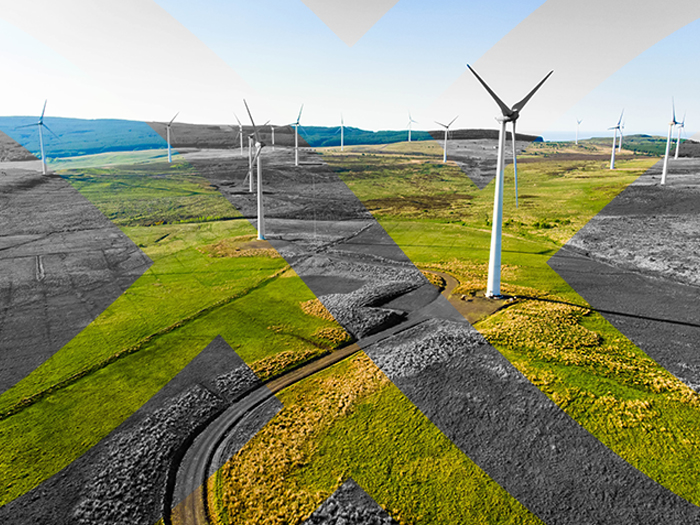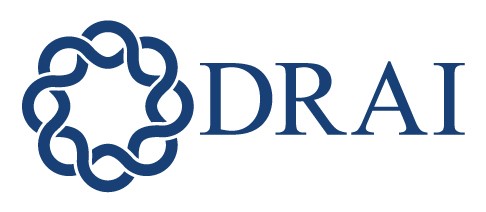News
better business decisions
Posted 3 years ago | 7 minute read

Meeting the twin challenges of security of supply and decarbonisation
Guest Blog with Siobhán McHugh is Chief Executive Officer of the Demand Response Association of Ireland.

As we approach the remaining months of 2022, the electricity sector faces two critical challenges – the very immediate concerns around security of supply, and the need to urgently deliver the actions needed to achieve decarbonisation this decade. Both of these tasks require focused and decisive action.
The crisis in Ukraine has revealed the considerable risks associated with over-reliance on external fuel supplies and the urgent need to diversify sources of capacity on our power system if we are to avoid threats to supply, particularly over the coming winter. Similarly, we need to move quickly to deliver the stretching targets that Ireland and Northern Ireland have set for electricity, with an ambition to get to 80% RES-E – electricity generated from renewable sources – by 2030.
Demand response
Demand response aggregators are companies that use technology to control specific electricity loads and assets on customer sites. They offer this aggregated response from customers to provide services to the electricity grid, helping to maintain system resilience, and balance the need for power by using customer assets rather than large, centralised generation.
Demand response demonstrates that the local actions of individual commercial and industrial electricity customers can have a massively positive impact on the power system, helping to secure electricity supplies by giving flexibility grid operators and providing essential system services to operate with higher levels of renewable generation. In future, smaller scale customers down to even residential level will be able to provide these services and become active participants in the electricity market.
Security of supply
With rising energy prices since the start of 2022 and the impact of the war in Ukraine on Europe’s energy independence, security of supply has become top of the political agenda. Even before this, Ireland, in particular, had concerns over security of supply for upcoming winters.
The Commission for Utility Regulation published a Security of Supply Programme of Actions in September 2021, seeking to address capacity concerns for future winters, after the forced outage of a number of conventional generators on the all-island power system left margins looking increasingly tight.
Demand response and customer flexibility is an obvious choice to help provide capacity when the power system is in periods of stress – using customer assets to respond by temporarily adjusting demand to keep the system in balance. When managing the grid, reducing electricity consumption has the same effect as increasing generation, and uses the latent underlying capability of existing customer resources, minimising the need for additional infrastructure.
More broadly, the European Union has sought to tackle the need to reduce dependency on imported fossil fuels through the REPower EU plan. Again, demand response has a role to play in meeting this challenge and can offer solutions that are quick to implement – leveraging customer flexibility through aggregated demand response offers grid operators both capacity and system services that would take years to build in the form of conventional power generation assets. Demand response also offers the additional benefit of being able to increase the use of power generated from renewable sources at times of abundance, as well reducing consumption at times of stress. This ability to shift power usage to times that are aligned to power system conditions further breaks the link between our electricity generation and imported fossil fuels.
Decarbonisation
Two major shifts will happen on our power system on the island of Ireland in coming decade. Firstly, we will strive for a target of generating up to 80% of electricity from renewables. To do this, the power system will need new sources of technical services that it once got from conventional fossil-fuel generators. We will need more demand response, more storage and more interconnection.
Our decarbonisation ambitions also mean that we will electrify more energy uses than ever before. Overall electricity demand will increase as we electrify parts of our heat and transport needs with heat pumps and electric vehicles. As demand will be higher than ever, we need to make as much of it flexible as we can to maintain security and operate a stable electricity system
Our electricity system still relies hugely on fossil fuel back-up from conventional power generation plant. We can replace this with low and zero-carbon technologies like demand response to provide reliable, low-cost, clean support for our electricity system. Demand response has the ability to provide a broad range of services to grid operators to rapidly adjust output, balance the system, maintain a secure power supply, and quickly respond to events.
Flexible energy consumers can support renewable power and the electricity grid by adapting when and where they use electricity. Ireland has a target under the Climate Action Plan 2021 to make 20%-30% of electricity demand flexible by 2030. To incentivise this additional flexibility and meet these targets, we need to put the right policy and delivery accountability in place to do so.
How do we fully harness the benefits of demand response and flexibility?
National policy needs to put the customer, in their homes, communities, and businesses, at the centre and ensure that customers can play a more active part in supporting the electricity system of the future. Currently this is easier with large users such as industry and commercial sites – in the future, as we further electrify transport and heating, those sources will also be able to offer flexible demand to the power system.
Energy market rules need to facilitate more demand flexibility, more efficient storage and other technologies – the future power system will need a broad range of technologies and sources to help support higher levels of renewables generating electricity. Traditional, large conventional generators will still be needed, but less frequently. Flexible demand provides a means of dealing with variation that helps the power system to stay in balance and can help avoid expensive capital investment in network assets.
As Ireland increases the amount of renewable generation to meet our decarbonisation targets, it is clear the power system will face new technical challenges. Demand response can provide flexible services to help manage intermittent generation such as wind, relieve congestion on electricity networks, and help balance supply and demand when capacity margins are tight. Fully exploiting the potential for demand response and flexibility among customers will be essential.
About

The Demand Response Association of Ireland (DRAI) represents approximately 700 MW of demand and embedded generation response across hundreds of industrial and commercial customer sites throughout the island of Ireland. These sites are managed by our members each of whom actively participate in the capacity, DS3 system services, and energy markets.
DRAI members are committed to shaping the future of the power system through advancing demand side flexibility on the island of Ireland. As Ireland strives to achieve up to 80% renewable generation by 2030, our promise as an industry-led organisation is to champion the development of innovative demand side solutions that are designed to address the system-wide requirement for flexibility.
Siobhán McHugh is Chief Executive Officer of the Demand Response Association of Ireland. She has over 15 years’ energy sector experience, having worked for Aryzta, the Commission for Regulation of Utilities, the Single Electricity Market Operator and EirGrid. Most recently, she worked as a management consultant, focused on energy strategy, transformation, and major programme delivery.






